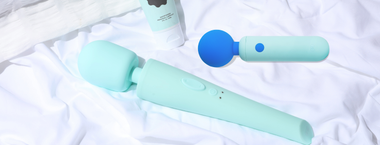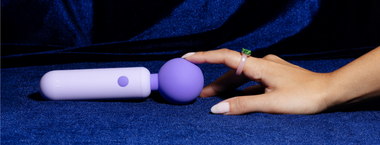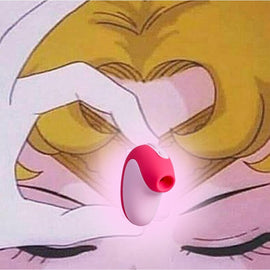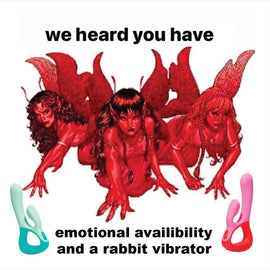Everything You Need to Know About Postpartum Intimacy

This article was published in collaboration with Mom Goes Mental, a blog on motherhood, modern parenting, and mental health. See the original post here.
Physical intimacy is one of the most taboo subjects in America, but it doesn’t have to be. Sex and other forms of physical intimacy are so, so important, especially for parents whose children look to them as a model for successful, loving relationships in their own futures. According to Wellbeing Chiropractic, “Your relationship with your partner influences your children’s sense of happiness, health and school performance.”
So not only are you improving your relationship with your partner, but you’re directly influencing your children.
As much as I know how important intimacy is in my relationship with my husband, it was still very hard after the birth of my daughters. Motherhood is so transformative, both physically and mentally, and feeling whole again was difficult. I knew literally nothing about what happened next.
Today, I’m partnering with sex-positive brand, Unbound, to talk more about the things you need to know about postpartum intimacy.
For the sake of personal experience, I’m going to talk about intimacy with a partner, but if you’re a single momma rockin’ it on your own, everything still applies.

Postpartum Intimacy Takes Patience
Doctors recommend waiting anywhere from 4-8 weeks before even attempting to have sex. This is an important time. Your body needs to recuperate from labor, whether you had a c-section or a vaginal birth, so be patient. Remember that connecting with your own body once again is just as important as connecting with your partner, and there are more ways to be physically intimate than intercourse.
You can reap the benefits of sex by just spending time touching your partner and being touched. Dr. Gary Brown, a marriage counselor, even wrote about how important physical touch itself is. Enjoy a snuggle while the baby nurses or hold hands during one of the rare moments when your baby is asleep. It’s all about connection. Be patient with yourself and each other as your body heals.
It Might Be Painful
I knew that sex after a vaginal birth could be painful, and after my first daughter was born, it was. However, I didn’t expect postpartum intimacy to be painful after my second c-section. I’d assumed that the pain was from the trauma of a baby descending through the birth canal, but that’s not always the case.
According to The Bump, pain can also be caused by the uterus and cervix shifting positions, nerve pain from the incision site, and excess estrogen causing vaginal dryness. When you’re ready (and your OB/GYN has given you the okay that your cervix is closed again and it is safe to resume sexual activity), products like Jelly, a water-based lubricant, can help ease some of that physical discomfort.
Your Body Has Changed
I’ve seen women who walked out of the hospital wearing their pre-pregnancy jeans, and there are certainly magical unicorn mommas whose bodies look as if they’ve never given birth.
I, like many women, am not that type of unicorn. I’m most certainly a magical unicorn momma, but I’m the kind with stripes on her belly and skin that’s a bit loose. My breasts have nursed 3 babies, and my belly has carried 5. It’s taken me a long time to love my postpartum body, but I do.
You’ll get there, too, but in the mean time, it’s okay to feel self-conscious. Pregnancy’s effects on women’s bodies is unpredictable at best, and your body may feel completely different. That’s okay. Tell yourself you’re beautiful in the mirror every time you see yourself, and talk with your partner about your thoughts and fears.
I remember having a surgery to “fix” a hernia I’d gotten above my belly button when I was pregnant with my middle daughter. The doctor fixed it alright, but he destroyed my belly button in the process. I cried for days for my belly button—I grieved for my belly button. My husband didn’t understand, but he sat with me the whole time in support. Talk to each other.
Choose Products Right for Your Needs
Because your body has changed both inside and out, your needs may also have changed. Hormones can affect everything from your libido to your body’s ability to produce sufficient lubricant naturally. Postpartum intimacy is challenging, but finding products that are right for your needs is so essential.
I found that I was more susceptible to UTI’s after my c-section, and focusing on cleanliness was important for me. Find what works for you, and don’t be ashamed if you need to bring this up with your doctor. She/he will love that you’re giving them the opportunity to help you.
Don’t be Afraid to Experiment
Postpartum intimacy is important because it allows you to reconnect with yourself and your partner on a physical and emotional level. Dr. Roya L. Rezaee told The New York Times that sexual health and expectations around what postpartum intimacy will look like are discussed “only when problems arise instead of helping to set expectations earlier and asking women about sexual function.”
The takeaway here? Postpartum intimacy is completely normal, and you should feel empowered to experiment with all forms of physical intimacy until you find what’s right for you, even if that means using new things like lubricant or gentle, personal vibrators.
Talk to your doctor and your partner; it shouldn’t be a taboo subject. If anything, we should be talking about it more, something Unbound firmly believes in.
Take a look at this article their experts wrote about avoiding pain during postpartum sex.
Above all, understand that you’re not alone in feeling awkward, uncomfortable, or just being in pain. The fourth trimester, as this time period is often called, is a blip on your radar. It will come, and it will go. The most important thing for your health and well-being is to start embracing the changes, have patience with yourself, and stay connected to your partner however that looks.

Postpartum intimacy is challenging, but it doesn’t have to be scary.
Tiffany Barry is the woman behind Mom Goes Mental, a blog about motherhood and modern parenting, with a focus on mental health. As a parent with over a decade under her belt in addition to formal education in child development, Tiffany hopes to share her wisdom and expertise with moms and dads who are just trying to do the best they can and love their kids along the way.

Latest Articles

A Hot and Quick Guide to BV, UTIs, and Yeast Infections
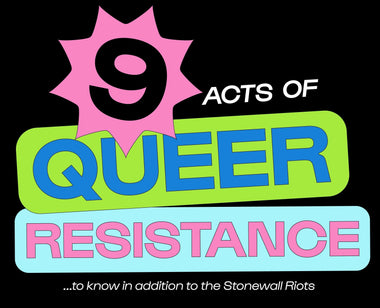
9 Acts of Queer Resistance to Know in Addition to the Stonewall Riots





